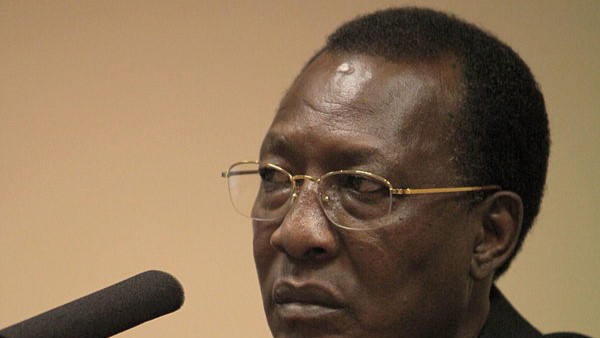With Chad’s announcement in early April that it was pulling its peacekeeping troops out of the Central African Republic (CAR), the country finally seemed to be bending to widespread criticism of the actions of its soldiers. Things had gone from bad to worse for Chad’s armed forces, the ANT, from a high point last year when its role in support of France’s Operation Serval in Mali was widely praised.
The ANT’s achievement in Mali has been overshadowed by recent events in the CAR, including reports from the African Union’s MISCA peacekeeping force in Bangui that Chadian soldiers in a suburb of the capital had opened fire in late March, killing at least 24 local people. Precise details of the incident were difficult to clarify, but MISCA’s information suggested that the Chadian soldiers had been attacked by Christian anti-Balaka groups angry at Chadian troops’ alleged collusion with Seleka,
a coalition made up of fellow Muslims. Later reports suggested that the Chadian soldiers were not in fact peacekeepers from MISCA, but troops sent in by N’Djamena to help evacuate Chadian citizens stranded in the CAR.
Whatever the truth of the incident, it underlines the
murky reality of Chad’s involvement in
its southern neighbor’s fortunes. It was the third time since December that Chadian soldiers have opened fire and killed local people in Central African Republic, and in January, Human Rights Watch accused Chadian peacekeeping troops of having “facilitated the movement of armed Seleka leaders complicit in grave abuses.”
Some of these soldiers have been crossing in and out of the Central African Republic since the country began to descend into crisis in late 2012, when the Seleka rebel coalition began to threaten the capital and then-President Francois Bozize. Chad has a long history of involvement in the CAR, dating back to the days when Libya used CAR territory as a base from which to fight against former Chadian dictator Hissene Habre. When Bozize, at the time a general in the CAR army, launched a campaign against CAR’s then-president, Ange-Felix Patasse, in 2003, President Idriss Deby of Chad did not prevent Bozize from using southern Chad as a rear base. Chadian soldiers were believed to have accompanied Bozize as he arrived in Bangui to seize power in a manner very similar to that in which he was deposed 10 years later. Long close to Deby, Bozize had initially enjoyed N’Djamena’s support as Seleka approached, but when the rebels made their second push to the capital in early 2013 it seems Chad decided to read the writing on the wall.
Although Chad has now announced it is now pulling out its forces, it bears noting why N’Djamena had maintained such a high level of interference in the CAR’s internal affairs. Continued rebel activity in the north of the CAR is a constant source of concern to N’Djamena because of its proximity to the Chadian border. Many Chadian rebels who took part in the attacks of 2008-2010 against N’Djamena and Abeche have periodically sought shelter in the northwest of the CAR along with rebels from Darfur, as the area was virtually untouched by Bangui’s authority. There they mixed with CAR rebel groups that had been operating around the Bria diamond-producing region for many years, many of which eventually morphed into the Seleka coalition. According to a U.N. security adviser in N’Djamena, it seemed Deby and his inner circle calculated in late 2012 that former Chadian rebels could be drawn into Seleka’s fight, removing the danger that they would launch attacks inside Chadian territory.
Reports of Chadian regular and irregular soldiers active in the CAR continued throughout 2012 and 2013, and a clear explanation of how they came to make up a sizable proportion of MISCA has not emerged. Chad’s hand was again clearly seen when former Seleka rebel turned President Michel Djotodia was forced to resign after he and his entire cabinet were summoned to N’Djamena in early 2014. Though Djotodia once had at least Deby’s tacit backing, it seems that within a year Deby had lost patience with the CAR’s new president and his inability to contain the security situation and the horrific escalating interreligious violence. The displacement of thousands of refugees into southern Chad has caused huge security headaches, as have the attacks on Chadian Muslims living in the CAR, who have suddenly begun to return to their home country by the thousands after many years away. The fact that Chad has sent troops in to “evacuate” people is testament to the level of government concern.
As the situation deteriorates in the CAR, it looks now as if Chad’s decision to switch allegiance from Bozize to Seleka was “indeed a miscalculation,” says Roland Marchal, a Chad expert at Sciences-Po in Paris. He adds that it is not clear who among Deby’s inner circle actually made the decision. While Chad certainly cannot be blamed for the religious and sectarian hatred that has ripped the CAR apart, there are costs associated with having allowed Chadian soldiers to unofficially move into the CAR in the past few years.
It now seems that the risks to the ANT’s good reputation following the Mali operation have outweighed the benefits of being part of the MISCA mission, and perhaps Chad’s nonpermanent seat on the U.N. Security Council was beginning to make its ambiguous role in the CAR a little uncomfortable. Although the April 3 statement from Chad’s Foreign Ministry announcing the pullout of Chadian peacekeepers made no mention of what would happen to the unofficial Chadian troops in the CAR, for now Chad’s ambitions to become a regional leader in sorting out other countries’ problems have perhaps been stretched too far.
Celeste Hicks is a freelance journalist whose work focuses on Africa and the Sahel. She was the BBC’s correspondent in Mali and Chad from 2007 to 2010.

